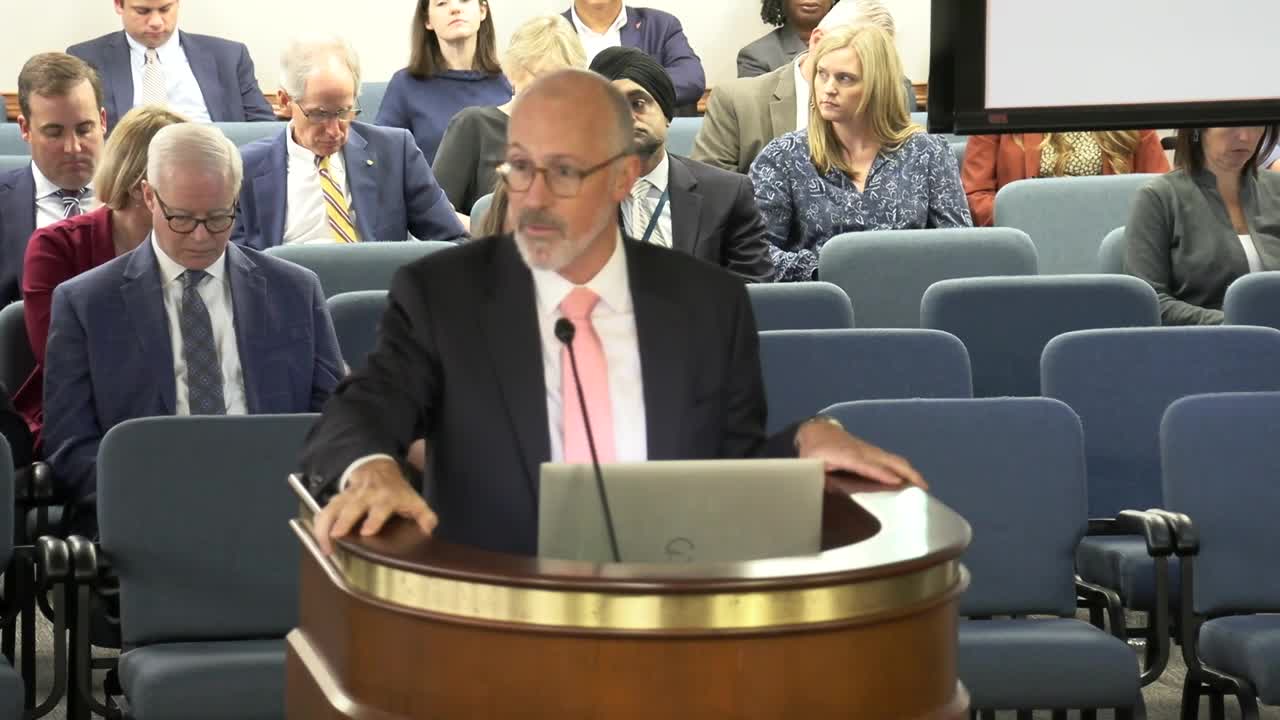Energy Capacity Crisis Sparks Concerns Over Rising Costs
October 24, 2024 | Judiciary, Standing, Senate, Committees, Legislative, South Carolina
This article was created by AI summarizing key points discussed. AI makes mistakes, so for full details and context, please refer to the video of the full meeting. Please report any errors so we can fix them. Report an error »

The Senate Judiciary Committee's Special Committee on South Carolina’s Energy Future convened on October 24, 2024, to address pressing issues surrounding energy capacity and pricing in the state. A significant focus of the meeting was the alarming 400% increase in capacity charges, which has raised concerns about affordability for consumers and the overall energy landscape in South Carolina.
Experts highlighted that the surge in capacity charges, amounting to an estimated $15 to $20 billion annually, is a direct response to the growing demand for energy and the challenges in meeting that demand. The discussion underscored the critical need for reliable energy sources, particularly as the region grapples with the complexities of integrating renewable energy sources like wind and solar into the grid.
The committee examined the implications of the current energy market structure, particularly in the PJM region, which encompasses a third of the American GDP. The conversation revealed that while gas and nuclear energy are seen as viable solutions for energy adequacy, the inability to secure firm gas contracts poses significant hurdles for building necessary infrastructure, such as pipelines. This situation could lead to prolonged high prices and energy shortages if not addressed.
Additionally, the meeting touched on the differences between the southeastern energy market and other regions, emphasizing the importance of firm transmission and the accountability of regulatory bodies. The committee members expressed a desire to understand how South Carolina's regulatory system compares to others, with a consensus that strong, independent regulators are essential for effective energy management.
As the committee continues to explore solutions, the overarching message remains clear: addressing the capacity challenges and ensuring affordable energy for South Carolinians will require strategic planning and collaboration among stakeholders. The next steps will involve monitoring the situation closely and considering potential reforms to enhance the state's energy infrastructure and regulatory framework.
Experts highlighted that the surge in capacity charges, amounting to an estimated $15 to $20 billion annually, is a direct response to the growing demand for energy and the challenges in meeting that demand. The discussion underscored the critical need for reliable energy sources, particularly as the region grapples with the complexities of integrating renewable energy sources like wind and solar into the grid.
The committee examined the implications of the current energy market structure, particularly in the PJM region, which encompasses a third of the American GDP. The conversation revealed that while gas and nuclear energy are seen as viable solutions for energy adequacy, the inability to secure firm gas contracts poses significant hurdles for building necessary infrastructure, such as pipelines. This situation could lead to prolonged high prices and energy shortages if not addressed.
Additionally, the meeting touched on the differences between the southeastern energy market and other regions, emphasizing the importance of firm transmission and the accountability of regulatory bodies. The committee members expressed a desire to understand how South Carolina's regulatory system compares to others, with a consensus that strong, independent regulators are essential for effective energy management.
As the committee continues to explore solutions, the overarching message remains clear: addressing the capacity challenges and ensuring affordable energy for South Carolinians will require strategic planning and collaboration among stakeholders. The next steps will involve monitoring the situation closely and considering potential reforms to enhance the state's energy infrastructure and regulatory framework.
View full meeting
This article is based on a recent meeting—watch the full video and explore the complete transcript for deeper insights into the discussion.
View full meeting